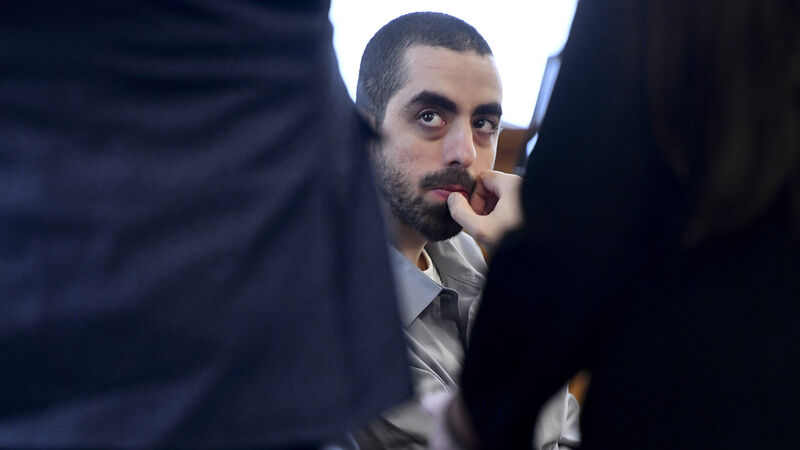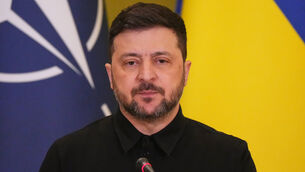Trial of man charged with stabbing Salman Rushdie hears closing arguments

Lawyers are delivering their closing arguments in the trial of a New Jersey man charged with trying to kill Sir Salman Rushdie on a New York lecture stage in a knife attack that left the author blind in one eye.
Hadi Matar, 27, is charged with attempted murder and assault in the August 2022 attack at the Chautauqua Institution in western New York.
s
He faces up to 25 years in prison if convicted at the court in Mayville, New York State.











